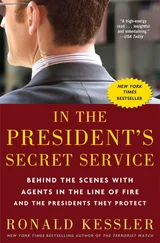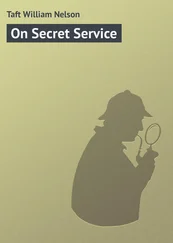William Fitzpatrick - Secret Service Under Pitt
Здесь есть возможность читать онлайн «William Fitzpatrick - Secret Service Under Pitt» — ознакомительный отрывок электронной книги совершенно бесплатно, а после прочтения отрывка купить полную версию. В некоторых случаях можно слушать аудио, скачать через торрент в формате fb2 и присутствует краткое содержание. Жанр: foreign_antique, foreign_prose, на английском языке. Описание произведения, (предисловие) а так же отзывы посетителей доступны на портале библиотеки ЛибКат.
- Название:Secret Service Under Pitt
- Автор:
- Жанр:
- Год:неизвестен
- ISBN:нет данных
- Рейтинг книги:5 / 5. Голосов: 1
-
Избранное:Добавить в избранное
- Отзывы:
-
Ваша оценка:
- 100
- 1
- 2
- 3
- 4
- 5
Secret Service Under Pitt: краткое содержание, описание и аннотация
Предлагаем к чтению аннотацию, описание, краткое содержание или предисловие (зависит от того, что написал сам автор книги «Secret Service Under Pitt»). Если вы не нашли необходимую информацию о книге — напишите в комментариях, мы постараемся отыскать её.
Secret Service Under Pitt — читать онлайн ознакомительный отрывок
Ниже представлен текст книги, разбитый по страницам. Система сохранения места последней прочитанной страницы, позволяет с удобством читать онлайн бесплатно книгу «Secret Service Under Pitt», без необходимости каждый раз заново искать на чём Вы остановились. Поставьте закладку, и сможете в любой момент перейти на страницу, на которой закончили чтение.
Интервал:
Закладка:
Lord Edward's movements had for some time been observed with anxiety, as much from general uneasiness as from regret that a brother of the Duke of Leinster should be connecting himself with conspiracy and treason. His proceedings in Paris in 1792 had cost him his commission in the army. In the Irish Parliament he had been undistinguished by talent, but conspicuous for the violence of his language. His meeting with Hoche on the Swiss frontier was a secret known only to a very few persons; Hoche himself had not revealed it even to Tone; but Lord Edward was known to be intimate with McNevin. He had been watched in London, and had been traced to the lodgings of a suspected agent of the French Directory; and among other papers which had been forwarded by spies to the Government, there was one in French, containing an allusion to some female friend of Lady Edward, through whom a correspondence was maintained between Ireland and Paris. Lady Edward's house at Hamburg was notoriously the resort of Irish refugees. Lord Edward himself was frequently there, and the Government suspected, though they were unable to prove, that he was seriously committed with the United Irishmen. One night, early in October, 1797, 5 5 It was October 8, 1797.
a person came to the house of Lord Downshire in London, and desired to see him immediately. Lord Downshire went into the hall and found a man muffled in a cloak, with a hat slouched over his face, who requested a private interview. The Duke ( sic ) took him into his Library, and when he threw off his disguise recognised in his visitor the son of a gentleman of good fortune in the North of Ireland, with whom he was slightly acquainted. Lord Downshire's 'friend' (the title under which he was always subsequently described) had been a member of the Ulster Revolutionary Committee. From his acquaintance with the details of what had taken place it may be inferred that he had accompanied the Northern delegacy to Dublin and had been present at the discussion of the propriety of an immediate insurrection. The cowardice or the prudence of the Dublin faction had disgusted him. He considered now that the conspiracy was likely to fail, or that, if it succeeded, it would take a form which he disapproved; and he had come over to sell his services and his information to Pitt. In telling his story to Lord Downshire he painted his own conduct in colours least discreditable to himself. Like many of his friends, he had at first, he said, wished only for a reform in parliament and a change in the constitution. He had since taken many desperate steps and connected himself with desperate men. He had discovered that the object of the Papists was the ruin and destruction of the country, and the establishment of a tyranny worse than that which was complained of by the reformers; that proscriptions, seizures of property, murders, and assassinations were the certain consequences to be apprehended from their machinations; that he had determined to separate himself from the conspiracy. 6 6 But it will appear that he continued to the end to play the part of a flaming patriot.
He was in England to make every discovery in his power, and if Lord Downshire had not been in London he had meant to address himself to Portland or Pitt. He stipulated only, as usual, that he should never be called on to appear in a court of justice to prosecute any one who might be taken up in consequence of his discoveries.
Lord Downshire agreed to his conditions; but, as it was then late, he desired him to return and complete his story in the morning. He said that his life was in danger even in London. He could not venture a second time to Lord Downshire, or run the risk of being observed by his servants. Downshire appointed the empty residence of a friend in the neighbourhood. Thither he went the next day in a hackney coach. The door was left unlocked, and he entered unseen by anyone. Lord Downshire then took down from his lips a list of the principal members of the Executive Committee by whom the whole movement was at that time directed. He next related at considerable length the proceedings of the United Irishmen during the two past years, the division of opinion, the narrow chance by which a rising had been escaped in Dublin in the spring, and his own subsequent adventures. He had fled with others from Belfast in the general dispersion of the leaders. Lady Edward Fitzgerald had given him shelter at Hamburg, and had sent him on to Paris with a letter to her brother-in-law, General Valence. 7 7 Cyrus Marie Valence, Count de Timbrune, born 1757, died 1822. His exploits as a general officer are largely commemorated in the memoirs of his friend, Dumouriez. After having been severely wounded, he resided for some time in London; but was expelled by order of Pitt on June 6, 1793. He then took up his residence in a retired outlet of Hamburg, which our spy soon penetrated; and he at last wormed himself into the confidence of Valence. The General afterwards resumed active military service, and fought with distinction in Spain and Russia. – Vide Discours du Comte de Ségur à l'occasion des Obsèques de M. Valence ; Souvenirs de Madame Genlis, &c. ; Alison's Hist. Europe, 1789-1815 , x. 189.
By General Valence he had been introduced to Hoche and De la Croix. He had seen Talleyrand, and had talked at length with him on the condition of Ireland. He had been naturally intimate with the other Irish refugees. Napper Tandy 8 8 The strange career of Tandy – who was made a general by Bonaparte – is traced in chapter viii. infra.
was strolling about the streets in uniform and calling himself a major. Hamilton Rowan 9 9 Some notice of Hamilton Rowan's adventurous courses will be found in chapter xv. infra.
had been pressed to return, but preferred safety in America, and professed himself sick of politics . After this, 'the person' – as Lord Downshire called his visitor, keeping even the Cabinet in ignorance of his name – came to the immediate object of his visit to England.
He had discovered that all important negotiations between the Revolutionary Committee in Dublin and their Paris agents passed through Lady Edward's hands. The Paris letters were transmitted first to her at Hamburg. By her they were forwarded to Lady Lucy Fitzgerald 10 10 Lady Lucy Fitzgerald, sister of Lord Edward, married in 1802 Admiral Sir Thos. Foley, K.C.B., died 1851.
in London. From London Lady Lucy was able to send them on unsuspected. Being himself implicitly trusted, both by Lady Edward and by Lady Lucy, he believed he could give the Government information which would enable them to detect and examine these letters in their transit through the post.
Pitt was out of town. He returned, however, in a few days. Downshire immediately saw him, and Pitt consented that 'the person's' services should be accepted. There was some little delay. 'The person' took alarm, disappeared, and they supposed that they had lost him. Three weeks later, however, he wrote to Downshire from Hamburg, saying that he had returned to his old quarters, for fear he might be falling into a trap. It was fortunate, he added, that he had done so, for a letter was on the point of going over from Barclay Teeling 11 11 Bartholomew Teeling was his correct name. In 1798 he was hanged in Dublin.
to Arthur O'Connor, 12 12 Arthur O'Connor, nephew and heir of Lord Longueville, sat in Parliament for Philipstown, and spoke so ably on Indian affairs that Pitt is said to have offered him office. In November 1796 he joined the United Irishmen, and from that date his life is one of much activity and vicissitude. Excitement and worry failed to shorten it. He became a general in the French service, and died, aged eighty-eight, April 25, '52.
and he gave Downshire directions which would enable him to intercept, read, and send it on.
Интервал:
Закладка:
Похожие книги на «Secret Service Under Pitt»
Представляем Вашему вниманию похожие книги на «Secret Service Under Pitt» списком для выбора. Мы отобрали схожую по названию и смыслу литературу в надежде предоставить читателям больше вариантов отыскать новые, интересные, ещё непрочитанные произведения.
Обсуждение, отзывы о книге «Secret Service Under Pitt» и просто собственные мнения читателей. Оставьте ваши комментарии, напишите, что Вы думаете о произведении, его смысле или главных героях. Укажите что конкретно понравилось, а что нет, и почему Вы так считаете.












